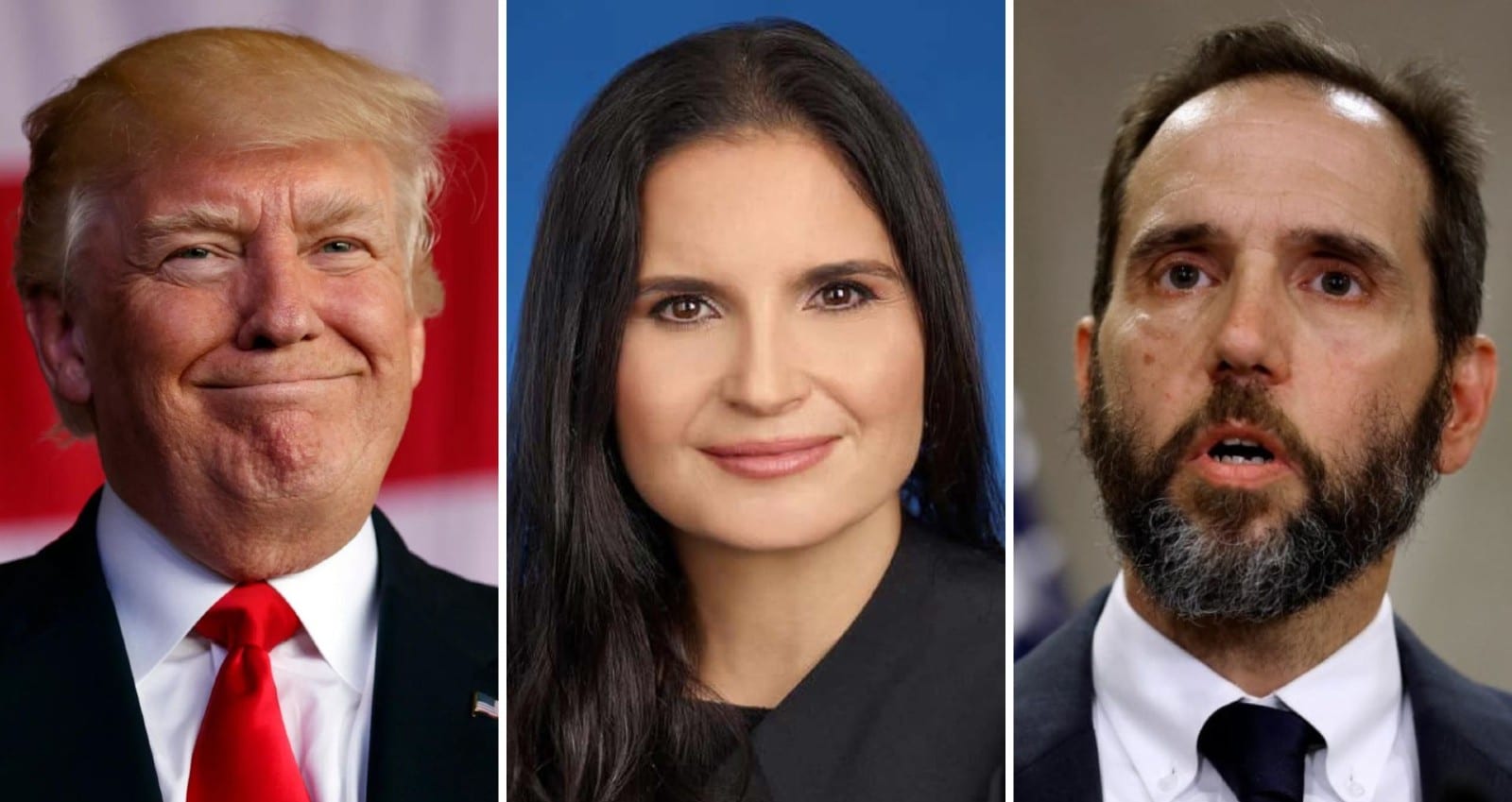OPINION: This article may contain commentary which reflects the author's opinion.
Former President Donald Trump’s attorneys alleged that prosecutors violated his constitutional rights in the classified documents case, according to filings on Tuesday.
Trump’s attorneys filed multiple motions to dismiss his classified documents case, including one for “prosecutorial misconduct and due process violations” and another based on the “unconstitutional” Mar-a-Lago raid. Trump’s attorneys further argued that the warrant, which they said was “executed in an egregious fashion and in bad faith,” lacked “the particularity required by the Fourth Amendment.”
The warrant did not establish any basis for “rummaging through the majority” of the rooms at Trump’s Mar-a-Lago resort, including “the private bedrooms of the First Lady and President Trump’s youngest son,” Trump’s attorneys wrote. The attorneys also requested that evidence gathered from the raid, along with through a “subsequent unlawful violation of President Trump’s attorney-client privilege,” be suppressed.
In the other motion to dismiss, Trump’s attorneys argued that “NARA, the Biden Administration, and DOJ ‘collude[d] in bad faith’ to deprive President Trump of his constitutional rights by using civil authorities to collect evidence for use in a criminal prosecution.”
“Politically biased NARA officials violated the agency’s regulations, and broke custom and practice dating back to the enactment of the [Presidential Records Act], by colluding with the Biden Administration to initiate a criminal investigation of President Trump rather than simply collecting the records that President Trump had designated as Presidential Record,” they wrote.
“As a result of this misconduct, under the guise of NARA’s civil and administrative authorities, the prosecution team collected evidence—including the 15 Boxes and statements by President Trump’s PRA representatives—that they used to further the criminal investigation in an unfairly prejudicial and unlawful fashion,” Trump’s attorneys continued.
The filings come on the heels of recently unsealed documents from the investigation into classified materials at Mar-a-Lago, revealing that the FBI was authorized to use deadly force during their 2022 raid on former President Donald Trump’s estate, highlighting the extreme measures taken by federal law enforcement in the operation.
Tons of new unsealed filings on classified docs case–I will try to post as much as I can (there goes the workout) but this is mind-blowing.
FBI authorized the use of deadly force at Mar-a-Lago pic.twitter.com/f0lR6UifAH
— Julie Kelly 🇺🇸 (@julie_kelly2) May 21, 2024
Earlier this month, U.S. District Judge Aileen Cannon gave Trump a huge legal win in his classified documents case brought by special counsel Jack Smith.
Cannon on Monday agreed to a Trump legal team request to extend a May 9 deadline. Two of his co-defendants had their deadlines extended as well, Newsweek reported.
“It relates to Section 5(a) of the Classified Information Procedures Act (CIPA), which would disclose what sensitive materials Trump intends to use at the trial,” the outlet’s report continued.
Trump has pleaded not guilty to 40 federal charges related to allegations of illegally retaining classified materials after leaving the White House in January 2021, as well as obstructing the federal attempt to retrieve them. In recent decades, former President Bill Clinton, his national security adviser Sandy Berger, former Vice President and now President Joe Biden, and former Vice President Mike Pence have each been found to have classified materials in their possession, though none of them were similarly charged.
In Biden’s case, former special counsel Robert Hur determined the former VP illegally possessed classified materials but refused to charge him, citing Biden’s diminished mental state.
Earlier this month, Cannon paused the start date of the trial indefinitely after she initially set a May 20 date. Given that there are still unresolved matters in the case and that Trump is presently on trial in Manhattan for alleged hush money payments made during the 2016 presidential campaign, the decision from Cannon was anticipated. Several of the attorneys defending him in the Florida federal case are also involved in the New York case.
Cannon further questioned federal prosecutors’ capacity to bring Trump to trial before the November presidential election, stating in a five-page order Tuesday that it would be “imprudent” to finalize a new trial date now, ABC News reported.
As he tries to regain the White House, Trump is facing four criminal cases; aside from the New York prosecution, it’s unclear if any of the other three will go to trial before the election.
